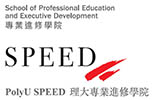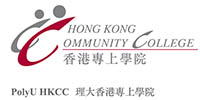雙語社評齊齊聽
[英語 (足本收聽)] Presented by Dr CHEUNG, Lok-ming Eric, Lecturer of School of Professional Education and Executive Development, The Hong Kong Polytechnic University
[普通話 (足本收聽)] Presented by Dr CHENG, Mei-seung Catherine, Lecturer of Hong Kong Community College, The Hong Kong Polytechnic University
The vaccine pass scheme will take effect on Thursday. Ordinary citizens who visit specified premises such as restaurants and supermarkets must produce a record of COVID-19 vaccination.
The outbreak in Hong Kong is out of control. Within one day, another 13 infected people died; the youngest of whom was less than a year old. Since the outbreak of the fifth wave of the pandemic, more than 70 people have died. Society as a whole must work together, be of one heart and one mind to contain the pandemic. Different from measures such as social distancing, the vaccine pass scheme (hereinafter ''vaccine pass'') is not a measure taken to curb the spread of the virus, but it can play a role in boosting the vaccination rate and reducing deaths from severe cases, and is thus an important anti-epidemic initiative that Hong Kong must implement as soon as possible. Government expert advisors had advocated the idea of a vaccine pass in November last year, but its implementation was delayed until this Thursday, an action late as it is.
Yesterday (21 February), the government announced the operational details of the vaccine pass. In general, citizens must be vaccinated against COVID-19 before they can enter 23 types of premises, including restaurants, shopping malls, supermarkets, wet markets, places of worship and so on. As for those who cannot get vaccinated because of health issues, they can enter the relevant premises with an exemption certificate issued by a doctor. Meanwhile, the vaccine pass will be implemented in places such as schools, nursing homes, hospitals, government offices and facilities through administrative instructions rather than via statutory application. Regarding private workplaces, although the authorities have not introduced any regulations in black and white, they have ''urged'' private institutions to implement the vaccine pass measure. For example, the HKMA has required banks to report their decisions on whether they will enforce the vaccine pass within a specified period. If they decide against introducing a pass system, they must provide the HKMA with an explanation.
When COVID-19 vaccines were first rolled out, some citizens were worried about their side effects. To assist doctors in assessing whether patients are suitable for vaccination, the Department of Health issued guidelines in March last year and has been continuously amending them in line with research and on-field experiences. The guidelines are now in their 11th version. Recent changes include raising the threshold for doctors' issuance of exemption certificates. Only rare cases such as patients who have had a stroke or a heart attack can be exempted for as long as six months. Some citizens are worried that they will no longer be issued an exemption certificate. Yet, government expert advisors have already pointed out that the vast majority of people are suitable for COVID-19 vaccination, and very often it is those with chronic diseases who need the protection of vaccines more than anyone else.
In the early stages of the implementation of the vaccine pass, the public and law enforcement officers may not be accustomed to it. Confusion or misunderstandings may be inevitable in the implementation and operation of the scheme. The authorities should pay close attention to the situation. On the one hand, they should step up the scheme's publicity campaign and offer more explanations, and on the other hand fine-tune its arrangements to ensure that its implementation is reasonable, appropriate and according to actual needs, so that there will not be too many case-by-case exemptions that will affect the measure's effectiveness. Questions like whether employees who refuse to get the jab without medical reasons will be fired is an issue of concern to many people. The authorities should try their best to clear up the confusion so that all parties can have something to base on when handling various situations.
合理合度落實「疫苗通」 莫讓谷針措施「半桶水」
疫苗通行證周四起實施,一般市民光顧食肆、超市等指定處所,必須有新冠疫苗接種紀錄。
香港疫情失控,一天內再有13名感染者死亡,最年輕者不足1歲。第五波疫情爆發至今,已有超過70人死亡,社會上下必須同心協力,遏阻疫情。有別於社交距離等措施,疫苗通行證(下稱「疫苗通」)不屬遏阻病毒擴散措施,但可以起到谷針減少重症死亡之效,仍是香港必須盡快為之的重要抗疫舉措,政府專家顧問去年11月已提倡,拖至本周四才實施,已嫌太遲。
昨天政府公布「疫苗通」操作細節,一般而言,市民必須接種過新冠疫苗,才可進入23類處所,包括食肆、商場、超市、街市及宗教場所等,至於因健康問題不能打針者,可持醫生豁免證明書進入相關處所。學校、院舍、醫院及政府辦公設施等地方,則以行政指令而非法例規範方式執行。私人工作場所方面,當局雖無明文規定,但有「呼籲」私人機構落實「疫苗通」措施,例如金管局便要求銀行在指定期限匯報決定,若不引入通行證機制必須解釋。
新冠疫苗推出之初,一些市民擔心副作用。為了協助醫生評估病人是否適合接種,衛生署去年3月發出指引,並按研究及實戰經驗不斷調整,至今已是第11版,近期的改動,包括收緊醫生簽發豁免打針證明書門檻,只有中風、心臟病發等極少數情况,可獲最長半年豁免,有市民對不再獲發豁免證明書感到憂慮,惟政府專家顧問早已指出,絕大多數人都適合接種新冠疫苗,長期病患者往往更須打針保護。
「疫苗通」落實初期,公眾和執法人員未適應習慣,操作執行出現混亂或誤會,恐怕無法避免。當局應密切留意情况,一邊加強宣傳解說,一邊微調理順問題,確保執行合理合度、符合實際需要,不會出現過多豁免酌情影響措施效用的情况。無醫學原因拒絕打針的員工會否被解僱等,是很多人關心的問題,當局應盡量釐清,讓各方處理時有所憑據。
明報社評2022.2.22






